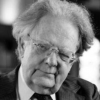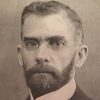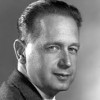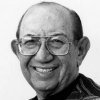The superstition into which we’re born,
Even when we recognize it, loses not
Its power on us! Not all those are free
Who ridicule their chains.[Der Aberglaub’, in dem wir aufgewachsen,
Verliert, auch wenn wir ihn erkennen, darum
Doch seine Macht nicht über uns. — Es sind
Nicht alle frei, die ihrer Ketten spotten.]Gotthold Lessing (1729-1781) German playwright, philosopher, dramaturg, writer
Nathan the Wise [Nathan der Weise], Act 4, sc. 4 [Templar] (1779) [tr. Corbett (1883)]
(Source)
(Source (German)). Alternate translations:
Yet the superstition
in which we have grown up, not therefore loses
when we detect it, all its influence on us.
Not all are free that can bemock their fetters.
[tr. Taylor (1790)]
The superstition in which we grew up,
Does not cease influencing us, e'en after
We have discover'd its absurdity.
Not all are free who do bemock their fetters.
[tr. Reich (1860)]
The superstition in which we were brought up never loses its power over us, even after we understand it.
[Source (1866)]
And yet the superstitions we have learned
From education, do not lose their power
When we have found them out; nor are all free
Whose judgment mocks the galling chains they wear.
[tr. Boylan (1878)]
The superstition in which we have grown up
Does not lose (even if we see through it)
Its power on us, on that account;
All are not free who mock their chains.
[tr. Jacks (1894)]
The superstitions of our early years,
E'en when we know them to be nothing more,
Lose not for that their hold upon our hearts;
Not all are free who ridicule their chains.
[tr. Maxwell (1917)]
The superstition in which we have grown up does not lose its power over us even for the reason that we recognize it as such. Not all are free who mock their chains.
[tr. Reinhardt (1950)]
The superstition in which we grew up,
Though we may recognize it, does not lose
Its power over us -- Not all are free
Who make mock of their chains.
[tr. Morgan (1955)]
Merely because we see the defects of the superstition we grew up in, it doesn't lose its hold upon our souls! Those men who mock their chains are not all free!
[tr. Ade (1972)]
Quotations about:
beliefs
Note not all quotations have been tagged, so Search may find additional quotes on this topic.
Man lives, not directly or nakedly in nature like the animals, but within a mythological universe, a body of assumptions and beliefs developed from his existential concerns.
Northrop Frye (1912-1991) Canadian literary critic and literary theorist
The Great Code: The Bible and Literature, Introduction (1982)
(Source)
The certainties of one age are the problems of the next.
R. H. Tawney (1880-1962) English writer, economist, historian, social critic [Richard Henry Tawney]
Religion and the Rise of Capitalism, ch. 5 (1926)
(Source)
A man’s action is only a picture-book of his creed.
Ralph Waldo Emerson (1803-1882) American essayist, lecturer, poet
“Poetry and Imagination,” Letters and Social Aims (1876)
(Source)
When all is said and all is done,
When all is lost or all is won —
In spite of musty theory,
Of purblind faith and vain conceit,
Of barren creed and sophistry:
In spite of all — success, defeat,
The Judge accords to worst and best,
Impartially, this final test:
What hast thou done with brawn and brain,
To help the world to lose or gain
An onward step? Canst reckon one
Unselfish, brave or noble deed,
That thou — nor counting cost! Hast done
To help a brother’s crying need?
Not what professed nor what believed —
But what good thing hast thou achieved?
So the universe is not quite as you thought it was. You’d better rearrange your beliefs, then. Because you certainly can’t rearrange the universe.
Isaac Asimov (1920-1992) Russian-American author, polymath, biochemist
Nightfall (1990) [with Robert Silverberg]
(Source)
The men leaned back on their heels, put their hands in their trouser-pockets, and proclaimed their views with the booming profundity of a prosperous male repeating a thoroughly hackneyed statement about a matter of which he knows nothing whatever.
Religion, a subject on which I have ever been most scrupulously reserved. I have considered it as a matter between every man and his maker, in which no other, & far less the public, had a right to intermeddle.
Thomas Jefferson (1743-1826) American political philosopher, polymath, statesman, US President (1801-09)
Letter to Richard Rush (31 May 1813)
(Source)











